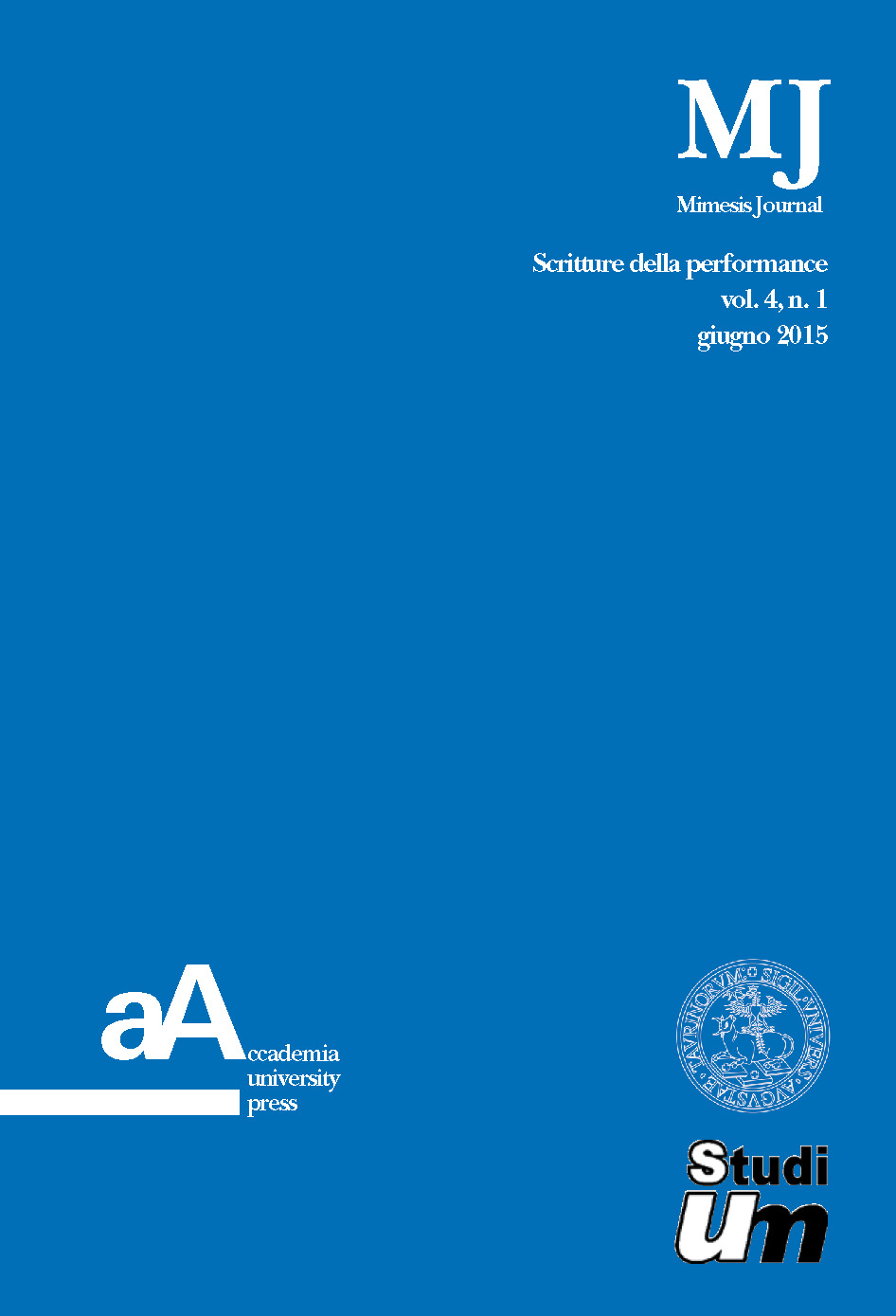Sulla questione della psicologia della creazione artistica dell’attore
DOI:
https://doi.org/10.4000/mimesis.969Abstract
Vygotskij’s essay K voprosu o psichologii tvorčestva aktëra, originally published in 1936, is here translated for the first time into Italian by Massimo Lenzi. The Soviet psychologist’s approach to the actor’s creative work is founded upon the recognition that both theatrical and general psychology fall short to account for the complexity of the player’s experience on the stage, unless the problem is considered in its historical and social dimension. Diderot’s Paradoxe, according to Vygotskij, is founded on facts and there lies its merit and deep insight into the actor’s work; nonetheless, equally apparent facts seem to suggest the possibility of different explanations, as for example those concerning Stanislavskij’s pedagogical practice. Then again, Vachtangov’s successful use of Stanislavskijan techniques in his own non-realistic stagings calls attention to the continuous shifting of the problem itself. So, the actor’s paradox has not an unique solution, but every theatrical age and/or style implies its own paradox, exactly as the expression of human mental life through emotion and feelings changes with epochs and social structures. The essay is preceded by a translator’s note dealing with the Italian rendering of certain concepts, whose use is peculiar to Russian theatrical culture.


